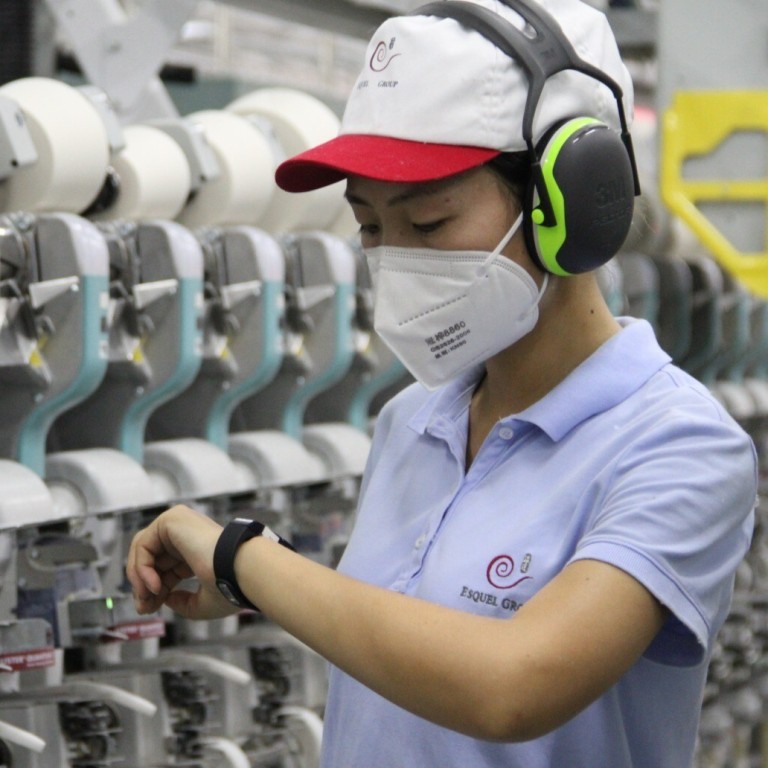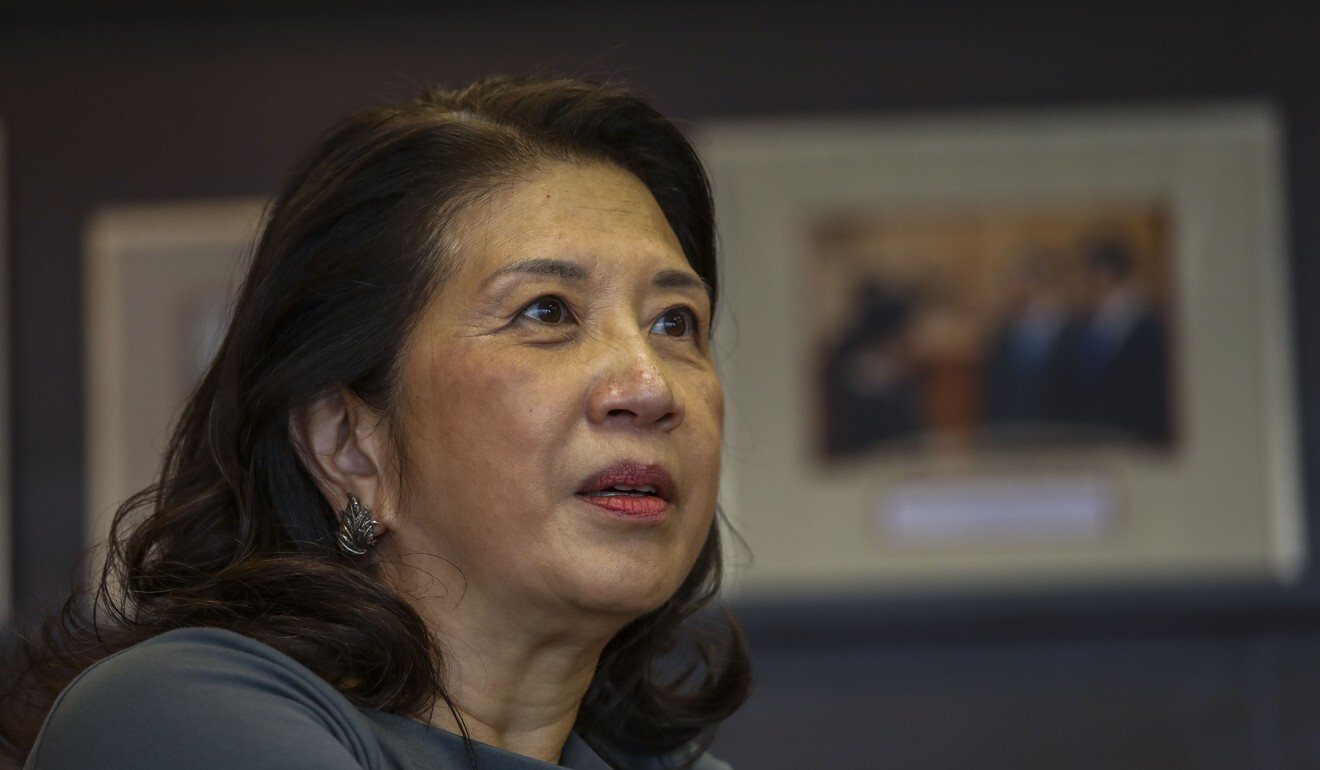
Esquel Group sues US over unit’s inclusion on ‘entity list’ as company’s chief says it faces ‘devastating harm’
- The clothing manufacturer’s Xinjiang subsidiary was placed on US Commerce Department list a year ago, prohibiting it from doing business with US suppliers
- Company chairman Marjorie Yang says the suit is required ‘to protect our business interests and mitigate the devastating harm that is accruing daily’
Hong Kong-based Esquel Group, one of the world’s largest shirtmakers, sued the US government on Tuesday, a year after a subsidiary was prohibited from buying US supplies over allegations it maintained ties to forced labour in China.
The lawsuit, filed in federal district court for the District of Columbia, seeks acknowledgement that Changji Esquel’s blacklisting was illegal and unconstitutional; the unit’s removal from the list; the production of evidence that led to the original determination; and the reimbursement of legal fees.
“We have been forced to take legal action in order to protect our business interests and mitigate the devastating harm that is accruing daily to our business, employees and business partners,” Esquel’s chairman and chief executive, Marjorie Yang, said.

Last year, a federal inter-agency committee determined that the Esquel subsidiary had engaged in activities “contrary to the foreign policy interests of the United States through the practice of forced labour involving members of Muslim minority groups in XUAR”.
Esquel denied the allegations at the time, and has spent the year since seeking information from the Commerce Department, including examples of evidence that led to the decision.
In a statement, James Tysse of Akin Gump, the law firm representing Esquel, said that the department had “provided no evidence to support its erroneous decision and acted far beyond its limited legal authority”.
Chinese firms see more stable business environment in US despite tensions, survey says
The Commerce Department declined to comment on the lawsuit.
In its complaint, the company said it had lost a number of clients – including Nike, Gap and Michael Kors – because of its listing and had been forced to close factories and reduce operations in China and elsewhere.

02:38
Global brands face backlash in China for rejecting Xinjiang cotton
The move constituted one strand of an inter-agency effort by the administration of then-president Donald Trump to punish Chinese private and public bodies over alleged human rights abuses in the region. The effort also included financial and travel sanctions against Chinese officials and import bans on specific companies and goods.
US Secretary of State Antony Blinken, who met on Tuesday with internment camp survivors from Xinjiang, has vowed that human rights advocacy will remain a prominent pillar of the administration’s dealings with Beijing.
“The United States will continue to place human rights at the forefront of our China policy and will always support the voices of activists, survivors, and family members of victims who courageously speak out against these atrocities,” State Department spokesman Ned Price said after the meeting.
In addition to the Commerce Department, named defendants in Esquel’s lawsuit include Commerce Secretary Gina Raimondo, as well as Jeremy Pelter, the top official for the Bureau of Industry and Security, the department agency that oversees entity lists.

In previous appeals to the US government, Esquel had offered to conduct additional audits of its Xinjiang operations, atop a previous inspection conducted by a Hong Kong-based auditor that had found “no evidence of forced, bonded or prison labour” at Changji Esquel’s facilities.
Human rights groups have contended that thorough audits of supply chains in Xinjiang are impossible, given the lack of access given to outside investigators.
The US government rarely makes public detailed evidence about why companies are added to entity lists. In its lawsuit, Esquel speculated that the prompt for the action could have been a 2019 report in The Wall Street Journal indicating that Chinese officials had referred Uygur workers from southern Xinjiang to the company from 2017 to 2018.
US agency urges UN to move on investigation of alleged human rights abuses in China
The company did not dispute that it was referred Uygur workers by the Xinjiang government, but said that the individuals had been evaluated through Esquel’s “objective, merit-based recruiting protocol”, and that the 34 people ultimately employed were given the same “compensation and benefits” as other Esquel employees.
While it has denied allegations of forced labour, Esquel is among a host of firms that have lobbied US lawmakers about legislation seeking to protect US companies and customers from patronising forced labour in Xinjiang, according to lobbying disclosures.
Representatives from Esquel declined to comment on its lobbying about the bill.

